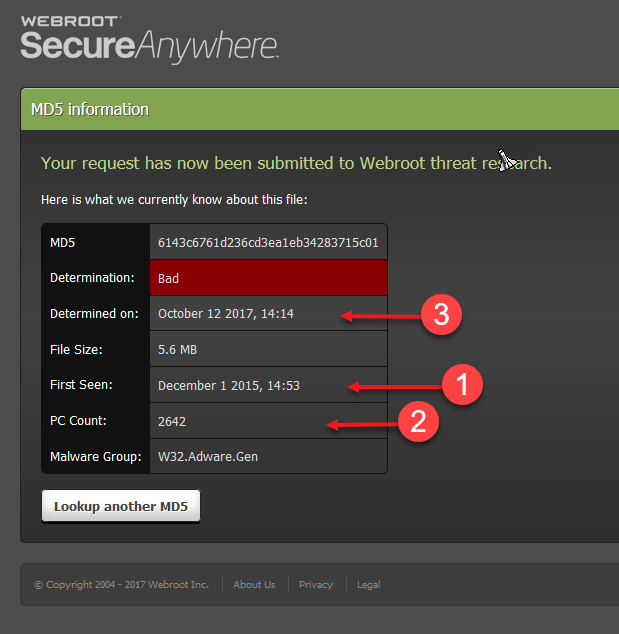Reports have surfaced that the Equifax website may have been hacked again. According to PC Mag, "visitors to the site were offered a fake Flash Player update that installed adware."
Webroot was one of only 3 antivirus providers (out of 65) to detect and block the adware, according to data from VirusTotal.com.
"Webroot first encountered this threat in early 2016. We've seen this specific file blocked on thousands of computers worldwide. Adware is a gray area, so it explains why only a few antivirus proivders caught this."
-
More on PC Mag and Forbes.






